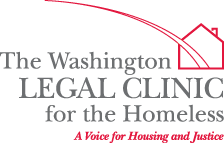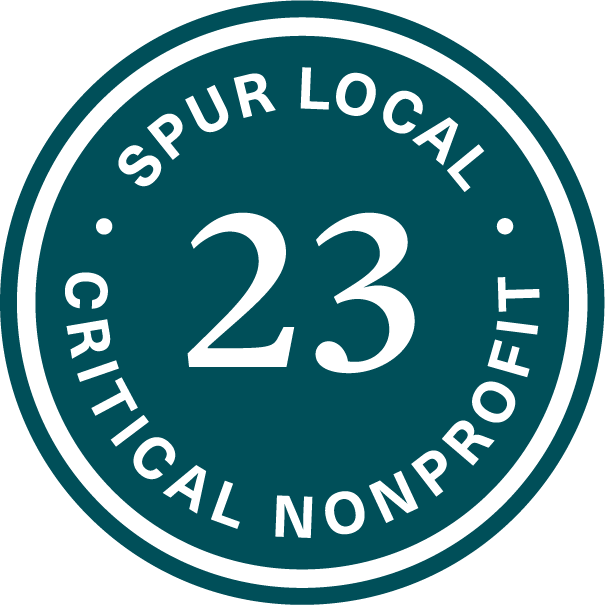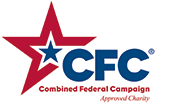On October 28th, the DC Council’s Committee on Business, Consumer, and Regulatory Affairs held an eleven hour hearing on raising DC’s minimum wage and expanding the District’s paid sick days law. The Legal Clinic testified in strong support of these measures at last week’s hearing and you can read our testimony below.
Tomorrow at 9:00am, DC workers and advocates will hold a rally at Freedom Plaza to voice support for the passage of legislation that would strengthen DC’s paid sick leave law and raise the minimum wage. Workers will also read testimony they were unable to deliver at the hearing on October 28th. We hope to see you tomorrow morning!
Testimony delivered by Max Tipping, Legal Clinic law intern at hearing on October 28th (You can also watch Max testify by clicking here and going to the 8:30 mark) :
I am here to voice the Legal Clinic’s strong support for raising the District’s minimum wage and ensuring paid sick leave for all District workers. More specifically, the Legal Clinic supports raising the minimum wage to $12.50, tying it to inflation, raising the tipped minimum wage, and mandating paid sick leave in accordance with the Earned Sick and Safe Leave Act of 2013. These measures will not only help to prevent and end homelessness, but will also dramatically reduce the need for DC-funded safety net services.
Please allow me to begin with the story of one of the Legal Clinic’s clients. This client worked her entire life, right up until she got sick. Her symptoms would come in unpredictable spurts and leave her temporarily incapacitated. Since she lacked adequate sick leave she was let go from her job. Eventually, she fell behind on her rent, lost her housing, and was forced to turn to the District government to keep herself and her daughter off the street. She received some housing assistance and was put up in a hotel for several months at substantial cost to the government. This scenario, which is not uncommon among clients of the Legal Clinic, may have been avoided entirely if she had been provided with adequate sick leave at the outset. This client did not want to rely on the District to support herself and her daughter; she preferred to work as she had her entire life. Her story shows the twin benefits of the measures currently before the Council: helping people provide for themselves while simultaneously reducing the burden on DC taxpayers.
Now I would like to move to a more concrete discussion of the benefits of these bills. As you know, rents in the District have skyrocketed over the past decade, resulting in the loss of half of the District’s low cost rental units.[1] Over the same time period, the incomes of the poorest 40% of DC households have stagnated.[2] Taken together, these factors are the root causes of the District’s current affordable housing crisis. DC’s paucity of affordable housing has in turn driven enormous increases in homelessness, particularly for families. On a single night in January of this year, there were nearly 1000 homeless families with children in shelter, an increase of almost 40% since 2009.[3] Solving homelessness begins with solving the affordable housing crisis, and the affordable housing crisis can be addressed in two ways: increasing the supply of affordable housing and increasing income. As the Gray Administration pointed out in its Housing Strategy Concept Paper that kicked off the reinvigoration of the Comprehensive Housing Strategy Task Force: “By combining affordable housing production with linkages to support services necessary to increase the opportunity for non-wage earners or lower income workers to obtain good paying jobs, there will be more equilibrium between the supply and demand for affordable housing.”[4]
To provide some perspective on just how difficult it is to afford housing here, a single parent in the District would need to work nearly 19 hours each and every day of the year at the current minimum wage to afford a 2-bedroom apartment at the Fair Market Rent of $1,412 per month.[5] That leaves just five hours a day to eat, sleep, see your children, get your children to school, and get yourself to work. If that single parent worked a standard 40 hour week at the current minimum wage, their rent would claim fully 99% of their income. Even a two-parent household would need each parent to work nearly 10 hours a day, every single day of the year, to afford housing. In contrast, if the minimum wage was increased to $12.50, two minimum-wage earners would be able to afford housing by each working about 43 hours per week.
Besides helping to prevent homelessness by allowing people to afford their current housing, raising the minimum wage will also help people who are currently homeless regain their housing. Contrary to common perception, a substantial number of people experiencing homelessness are also employed. For example, as of last January, 20% of single homeless individuals were employed, as were 25% of all homeless adults with children.[6] Given that the family shelter at DC General is consistently full to capacity, this is a point worth emphasizing: these measures would be able to significantly improve the situations of fully a quarter of all homeless families. Indeed, there are few pieces of legislation that come before this council that could have such a dramatic positive impact on such a substantial number of people experiencing homelessness.
In addition to benefiting District workers, these measures will allow the District government to either save money on safety net services or enable it to serve a greater number of DC residents in need. A worker receiving the current minimum wage is still forced to substantially rely on direct financial benefits like TANF and housing benefits like the local rent supplement program. However, a family with one or two living-wage earners could significantly reduce its reliance on public benefits programs, and depending on the size of the family, could move off of public benefits entirely. A living wage would also result in the District’s affordable housing programs being able to pay significantly lower subsidies, thereby helping to make affordable housing available to more DC residents.
To conclude, the Legal Clinic strongly supports raising the minimum wage and mandating paid sick leave for District workers. While none of the measures discussed here will end homelessness tomorrow, they do present a unique opportunity to relieve the structural pressures that drive people into homelessness, and to help individuals and families that are currently homeless literally earn their way out of shelters and back into housing.
[1] DC Fiscal Policy Institute, Disappearing Act: Affordable Housing in DC is Vanishing Amid Sharply Rising Housing Costs at 3, 4 (May 7, 2012).
[2] Id.
[3]Metro Washington Council of Governments (MWCOG), Homelessness in Metropolitan Washington: The 2013 Point-in-Time Count at 8 (May 2013).
[5] National Low Income Housing Coalition, Out of Reach 2013: America’s Forgotten Housing Crisis at 43 (March 2013).
[6] Metro Washington Council of Governments (MWCOG), Homelessness in Metropolitan Washington: The 2013 Point-in-Time Count at 11 (May 2013).





